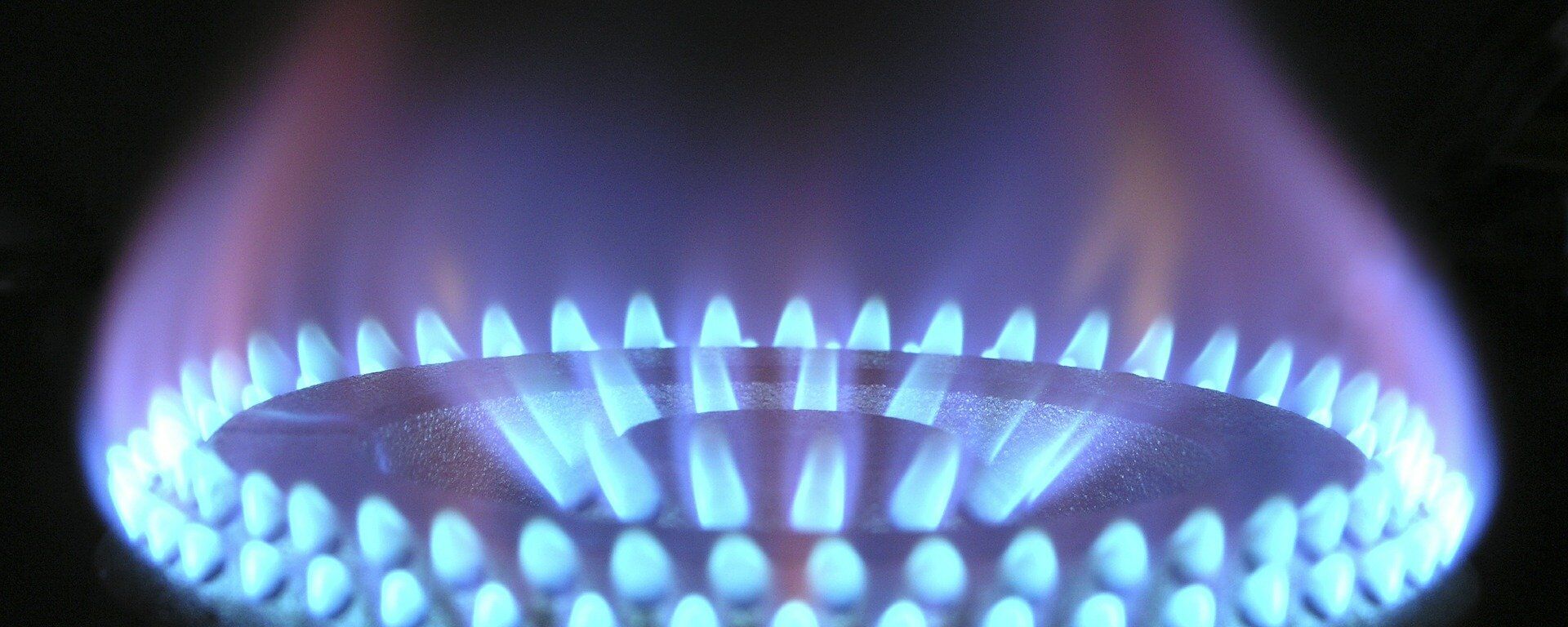https://sputnikglobe.com/20220117/uk-households-facing-fuel-stress-may-treble-after-new-energy-cap-in-april-warns-think-tank-1092314411.html
UK Households Facing ‘Fuel Stress’ May Treble After New Energy Cap in April, Warns Think Tank
UK Households Facing ‘Fuel Stress’ May Treble After New Energy Cap in April, Warns Think Tank
Sputnik International
The next review of the energy price cap, affecting around 11 mln Britons paying standard or variable tariffs, set by energy regulator Ofgem, is coming in... 17.01.2022, Sputnik International
2022-01-17T10:20+0000
2022-01-17T10:20+0000
2023-05-28T15:17+0000
energy
gas
united kingdom (uk)
https://cdn1.img.sputnikglobe.com/img/07e5/0a/06/1089700923_0:0:910:512_1920x0_80_0_0_58cee50c0644a1bfae94dd23e84f0bdf.jpg
The number of households spending at least 10% of their family budgets on energy bills and thus suffering from “fuel stress” may treble to 6.3 million once the new energy price cap is introduced on 1 April after a February review, warns a study by the Resolution Foundation.Not only the poorest families, but also low- and middle-income families will face having to spend a greater share of their family budget on paying energy bills, underscored the independent think tank in its forecast.9% of English households are currently already experiencing fuel stress due to “unaffordable” energy bills. Furthermore, in Wales, Scotland and Northern Ireland, families spending over 10% of income on fuel are defined as “fuel poor”.The figure is anticipated to surge to 27%, driven by a hike in the energy price cap that is predicted to grow more than 50% in April, according to the trade body Energy UK.The energy price cap, introduced in January 2019, is the maximum amount a utility company can charge an average customer annually in the UK for the amount of electricity and gas they use.Affecting approximately 11 million Britons on standard or variable tariffs, the current price cap, set last August, is £1,277 and means that if wholesale prices rise, there is a limit to the bills being upped.However, energy prices have skyrocketed in the past six months due to a plethora of reasons. Among these was a longer and colder than usual spring of 2020-2021 in Europe, resulting in depleted underground gas storage reserves across the region; increased oil and gas demand in Asia, a rapid recovery of some economies after COVID-19 lockdown, and a summer characterised by little wind to generate alternative power.Experts are forecasting a potential annual cost of average usage soaring from £1,277 to £2,000. Coupled with UK inflation at a 10-year high and expected to increase further, and prices of consumer goods rising, many have warned of a cost-of-living “crisis”.According to the Resolution Foundation, levels of fuel stress are expected to be felt particularly acutely in the north-east and the West Midlands (33% and 32%, respectively), by pensioner households (38%), those residing in local authority housing (35%) and residents of poorly insulated homes (69% of families in homes with an energy performance certificate F-rating).Echoing warnings of a looming cost-of-living crisis, the foundation called on the government to intervene to support lower-income families through the benefits system. This, said the think tank, could be effectively done by faster-than-planned uprating of benefits in April.In line with convention, inflation-linked rates for many benefits and the state pension were set last year before prices started rising rapidly in the past months. Accordingly, most of these are set to go up by only 3.1% in April.Another suggested measure is to introduce an additional payment based on the Warm Home Discount scheme.The think tank recommended raising the £140 payment by at least £300. The Warm Home Discount is a one-off payment of £140 designed to help cover the cost of heating a home.Furthermore, the think tank advised widening eligibility to all families in receipt of pension credit to help with living costs or working age benefits (8.5m families in total) and making payments automatic. The additional support, it argued, could be delivered via an additional bill discount in the coming spring. The aid could be taxpayer funded, to rule out further increases in everyone else’s energy bills, stated the foundation, estimating the measure would cost the taxpayer £2.5 billion.The think tank urged the government to cut everyone else’s energy bills by temporarily transferring social and environmental levies from bills to general taxation, and thus slashing average bills by around £245.It estimated that the move could potentially slash the number of families suffering fuel stress by more than seven percentage points.Annual energy bills could be lowered by up to £545, at a cost of £7.3 billion, with 2.7 million fewer families across the country forced to contend with fuel stress said the leading research group.According to Cornwall Insights energy sector specialist, bills in the UK could rise even more at the following quarterly revaluation in August 2022 unless there is a significant fall in energy prices globally.Prime Minister Boris Johnson, during his visit to a pharmacy in Uxbridge on 10 January, emphasised that he "understands" how people are struggling and was "looking at what we can do" to help “people with the cost of their fuel”.
https://sputnikglobe.com/20220111/uks-ovo-energy-sorry-for-poorly-judged-advice-to-cuddle-pets-eat-porridge-as-energy-bills-soar-1092176564.html
https://sputnikglobe.com/20211227/uk-energy-sector-approaching-2008-financial-crisis-proportions-ceo-warns-1091832039.html
united kingdom (uk)
Sputnik International
feedback@sputniknews.com
+74956456601
MIA „Rosiya Segodnya“
2022
News
en_EN
Sputnik International
feedback@sputniknews.com
+74956456601
MIA „Rosiya Segodnya“
Sputnik International
feedback@sputniknews.com
+74956456601
MIA „Rosiya Segodnya“
energy, gas, united kingdom (uk)
energy, gas, united kingdom (uk)
UK Households Facing ‘Fuel Stress’ May Treble After New Energy Cap in April, Warns Think Tank
10:20 GMT 17.01.2022 (Updated: 15:17 GMT 28.05.2023) The next review of the energy price cap, affecting around 11 mln Britons paying standard or variable tariffs, set by energy regulator Ofgem, is coming in February, with potential changes to be introduced from 1 April. There have been concerns that the February price hike could be as high as 50% amid skyrocketing energy prices in the past months.
The number of households spending at least 10% of their family budgets on
energy bills and thus suffering from “fuel stress” may treble to 6.3 million once the new energy price cap is introduced on 1 April after a February review, warns a study by the Resolution Foundation.
Not only the poorest families, but also low- and middle-income families will face having to spend a greater share of their family budget on paying energy bills, underscored the independent think tank in its forecast.
9% of English households are currently already experiencing fuel stress due to “unaffordable” energy bills. Furthermore, in Wales, Scotland and Northern Ireland, families spending over 10% of income on fuel are defined as “fuel poor”.
The figure is anticipated to surge to 27%, driven by a hike in the energy price cap that is predicted to grow more than 50% in April, according to the trade body Energy UK.
The energy price cap, introduced in January 2019, is the maximum amount a utility company can charge an average customer annually in the UK for the amount of electricity and gas they use.
Affecting approximately 11 million Britons on standard or variable tariffs, the current price cap, set last August, is £1,277 and means that if wholesale prices rise, there is a limit to the bills being upped.

11 January 2022, 11:20 GMT
However, energy prices have skyrocketed in the past six months due to a plethora of reasons. Among these was a longer and colder than usual spring of 2020-2021 in Europe, resulting in depleted underground gas storage reserves across the region; increased oil and gas demand in Asia, a rapid recovery of some economies after COVID-19 lockdown, and a summer characterised by little wind to generate alternative power.
Experts are forecasting a potential annual cost of average usage soaring from £1,277 to £2,000. Coupled with UK inflation at a 10-year high and expected to increase further, and prices of consumer goods rising, many have warned of a
cost-of-living “crisis”.
According to the
Resolution Foundation, levels of fuel stress are expected to be felt particularly acutely in the north-east and the West Midlands (33% and 32%, respectively), by pensioner households (38%), those residing in local authority housing (35%) and residents of poorly insulated homes (69% of families in homes with an energy performance certificate F-rating).
“Fuel stress levels are particularly high among pensioner households and those in poorly insulated homes – a stark reminder of the need to modernise Britain’s leaky housing stock and curb national dependency on gas for power and heating,” Jonny Marshall, senior economist at the Resolution Foundation, was cited as saying by The Guardian.
Echoing warnings of a looming cost-of-living crisis, the foundation called on the government to intervene to support lower-income families through the benefits system. This, said the think tank, could be effectively done by faster-than-planned uprating of benefits in April.
In line with convention, inflation-linked rates for many benefits and the state pension were set last year before prices started rising rapidly in the past months. Accordingly, most of these are set to go up by only 3.1% in April.
Another suggested measure is to introduce an additional payment based on the
Warm Home Discount scheme.
The think tank recommended raising the £140 payment by at least £300. The Warm Home Discount is a one-off payment of £140 designed to help cover the cost of heating a home.
Furthermore, the think tank advised widening eligibility to all families in receipt of pension credit to help with living costs or working age benefits (8.5m families in total) and making payments automatic. The additional support, it argued, could be delivered via an additional bill discount in the coming spring. The aid could be taxpayer funded, to rule out further increases in everyone else’s energy bills, stated the foundation, estimating the measure would cost the taxpayer £2.5 billion.

27 December 2021, 11:03 GMT
The think tank urged the government to cut everyone else’s energy bills by temporarily transferring social and environmental levies from bills to general taxation, and thus slashing average bills by around £245.
It estimated that the move could potentially slash the number of families suffering fuel stress by more than seven percentage points.
Annual energy bills could be lowered by up to £545, at a cost of £7.3 billion, with 2.7 million fewer families across the country forced to contend with fuel stress said the leading research group.
“While not cheap at £7.3bn, this plan is affordable, and by cutting bills by up to £545 would help prevent the upcoming rise in energy bills turning into a cost of living catastrophe for millions of families,” Marshall was cited as saying.
According to Cornwall Insights energy sector specialist, bills in the UK could rise even more at the following quarterly revaluation in August 2022 unless there is a significant fall in energy prices globally.
Prime Minister Boris Johnson, during his visit to a pharmacy in Uxbridge on 10 January, emphasised that he "understands" how people are struggling and was "looking at what we can do" to help “people with the cost of their fuel”.





